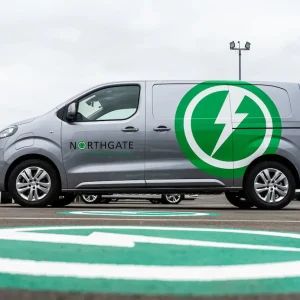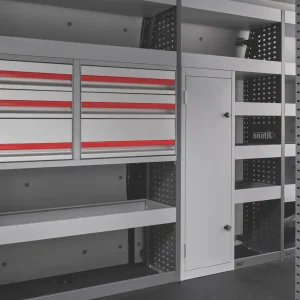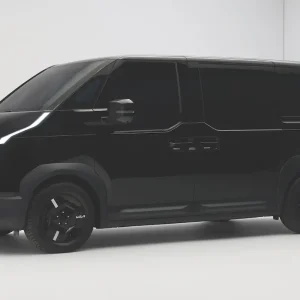With the tough new European Whole Vehicle Type Approval rules threatening the survival of scores of small body-building firms, light commercial vehicle manufacturers have spotted an opportunity for expansion in moving to plug the hole in the market this will create.
According to Ron Cocker, Type Approval manager for the Vehicle Builders and Repairers Association, the bureaucratic burden of the legislation could force a quarter of small, specialist body builders to the wall.
Vauxhall in particular has signaled its intention to pick up the slack.
The Luton-based manufacturer claims it now has its largest ever range of core and recognised conversions and is aiming for further growth.
Core conversions are ready-to-run factory-built models whereas Vauxhall uses a selection of body-builder partners to carry out recognized conversions, which tend to meet more niche requirements where the numbers are too small to warrant the production of a core model.
Vauxhall’s CV brand manager Steve Bryant says: “We are taking the lead on Type Approval. We have briefed body builders on the rules and we want to show converters we can work with them.”
He estimates conversions account for 35% of sales of LCVs weighing from 3.5-tonnes. The Movano provides the base for the majority of Vauxhall conversions with the most popular bodystyles being tippers, dropsides and boxsides.
Vauxhall now offers a choice of 56 core conversions of the Movano compared to just 13 of the previous generation model. They are approved to EWVTA standards and come with a full three-year manufacturer warranty covering both chassis and conversion.
Recognised conversions cover more specialised applications and for these models the body builder matches the manufacturer warranty on the base model with its cover of the conversion. Vauxhall says these vehicles tend to be locally developed and adapted to meet the customers’ requirements.
Vauxhall’s Special Vehicle Engineering team based at Millbrook Proving Ground validates all recognised conversions.
The brand is working with 10 body builders approved under EWVTA rules.
These include racking specialist Bott, a Cold Consortium fridge van and a Maxi-Low Luton box body.
Like the Movano, Renault’s Master is also available in rear-wheel drive and an extensive portfolio of conversions includes the RWD double cab tipper converted in the UK by VFS, which has a payload of 1,348kg. Other models are a RWD 17-seat minibus and Luton LoLoader with 18.5m3 loadspace.
In the third quarter of last year Renault introduced the option to increase the towing capacity on the RWD Master chassis cab by 500kg to 3.5-tonnes for a cost of £350, excluding VAT.
Renault’s sister company Nissan has rolled out a series of NV400 conversions under its Good to Go scheme. These include a fridge van, a crew van, a minibus in nine and 17-seat guise as well as a dropside and tipper. Nissan says conversions now take 11% of NV400 sales.
Nissan’s LCV sales manager Matt Dale says the brand keeps conversions in-house wherever possible.
“We have increased our range of factory conversions and will continue to do so. This not only mitigates issues around EWVTA but also gives customers peace of mind with three-years full Nissan warranty, and it helps ensure strong residuals.”
Citroen’s well-established Ready to Run scheme has long set a benchmark in the supply of ready-bodied specialist vehicles. The brand credits its comprehensive range of conversions for widening its customer base and enabling it to compete in new markets.
The manufacturer’s stable of partners includes: Advanced Minibus (Relay 15 and 17 seat minibuses), Buckstone (Relay Luton vans), Co Trim (Dispatch crew vans), Ingimex (Relay dropsides), KFS (car transporters), Nicholson McLaren (Nemo and Berlingo dual-fuel vans), Somers (Berlingo, Dispatch and Relay temperature controlled vans), Supertrucks (Glass carriers and Relay high-cube, low-load Spacevan) and Tipmaster (Relay tippers).
Ford’s One Stop Shop initiative offers a similar depth of choice with a curtain slider and both one and three-way tippers included in the line-up.
The blue oval promises its new two-tonne Transit, which goes on sale early next year, will be up for grabs in a comprehensive array of body styles, including single and double chassis cab and chassis cowl versions, which are basically chassis cabs without the cab roof. Ford says the all-new SuperJumbo Chassis Cab will accommodate 5.0m floats or box bodies.
Iveco teamed up with body builders Ingimex and Alloy Bodies last year to make a range of bodied Daily chassis cab models available to buy from dealerships under its DriveAway options programme. Telford-based Ingimex produces tippers and dropsides while Manchester firm Alloy bodies supplies Luton box bodies.
Not part of the Drive Away scheme are the multi-compartment refrigerated bodies developed by Solomon, with Hubbard temperature control units, for the supermarket chains Asda and Tesco.
These are “incredibly bespoke”, according to an Iveco spokesman. He stresses the importance of offering a wide range of conversions to stop potential customers switching to other manufacturers that offer the bodystyles they need.
As he puts it: “You don’t want vehicle sale prevention.”
Volkswagen reckons it can boost Crafter sales by finally punching its weight in the conversion market.
“We need to catch up in conversions, says UK CV boss, Alex Smith, “We’ve been under-represented here.”
Under its revamped Engineered to Go scheme it has teamed up with Ingimex to deliver a selection of converted Crafter vans.
“Whether it’s a dropside, Luton, tipper or fridge conversion, the benefits to customers include an enhanced residual value, as they are listed within Cap price guide,” says a spokesman.
Whether keeping the work in-house or getting into bed with body builders, LCV manufacturers are increasingly targeting the conversion market as a growth area.





